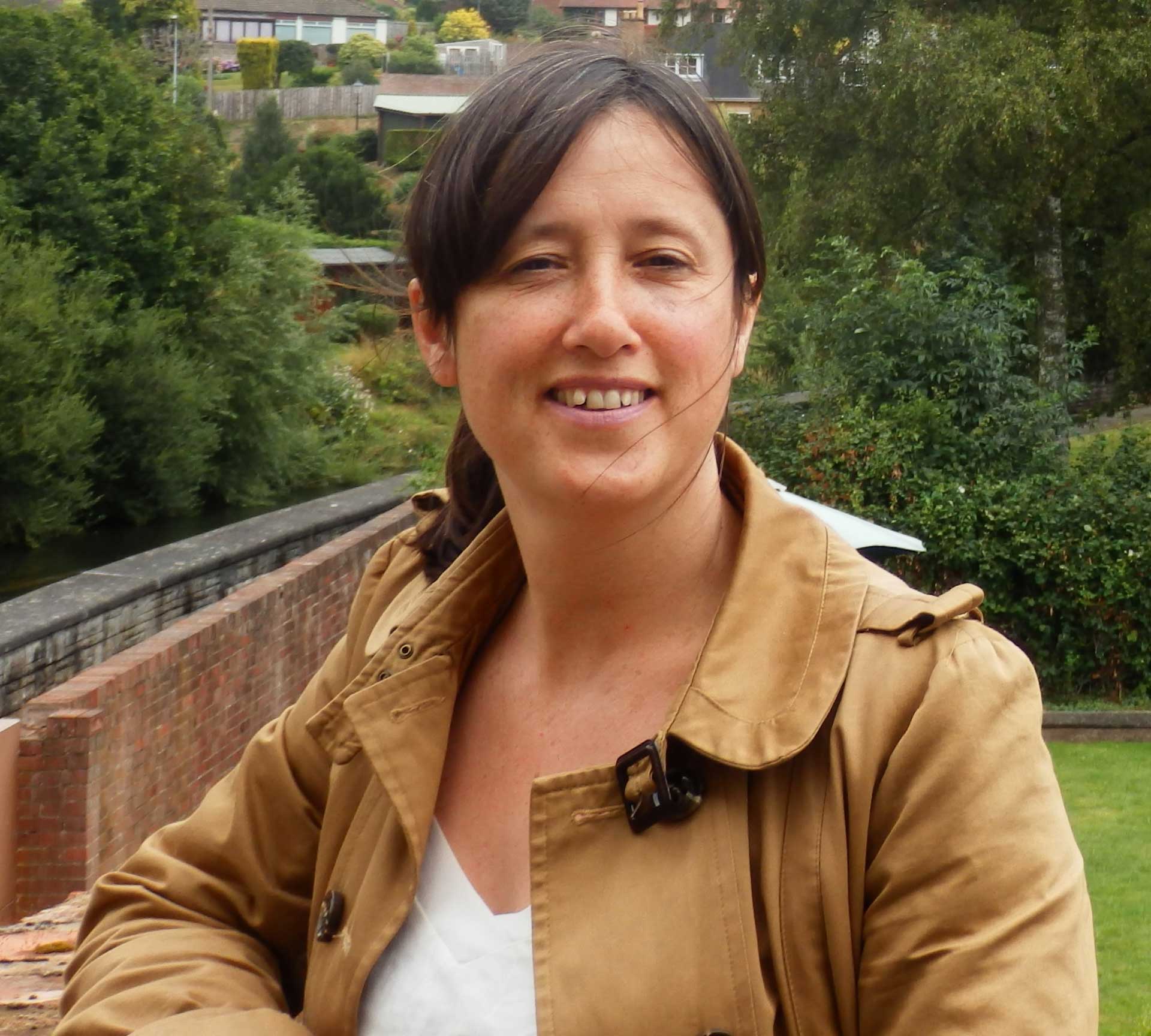News
Royal College returns to visit neonatal unit
 INDEPENDENT reviewers will return to Hywel Dda University Health Board to see how the neonatal (special care baby) service has developed and to speak to staff and service users later this week.
INDEPENDENT reviewers will return to Hywel Dda University Health Board to see how the neonatal (special care baby) service has developed and to speak to staff and service users later this week.
The Royal College of Paediatrics and Child Health (RCPCH), in collaboration with four other Royal Colleges, undertook an expert evaluation of women and children’s services in 2015, following changes made the previous year.
The review considered changes across maternity and paediatric services, as well as neonatal services, the latter of which was a specific request by the Welsh Government Health Minister.
The review found improved compliance with national and professional service standards and said there was ‘no clinical sense in reversing’ the changes. For neonatal care, it noted improvements had been made to staffing numbers as a result of the change and the development of new neonatal outreach nurse team had resulted in shorter lengths of stay for some babies.
The report also made 54 recommendations for further improvement and enhancements to services to benefit staff and patients. For neonatal services this included the need to progress the capital Phase Two project at Glangwili Hospital to improve the environment and accommodation for families.
The review team will consider again staffing, involvement of parents and families in developments of services, transfers in and out of the unit and areas of good practice or concern. They will speak to a range of staff from the University Health Board, as well as current users.
News
Too many children in Wales living in poverty – Lib Dems want action

THIS week in the Senedd, the Welsh Liberal Democrats renewed their demands for the implementation of child poverty targets.
According to a report from the Bevan foundation, 29% of children living in Wales are currently experiencing poverty (an estimated 190,000 children).
The same report highlighted that the largest percentage of children living in poverty are from working households or in couple households.
The Welsh Lib Dems are now renewing calls for the Welsh Government to create a set of targets for reducing child poverty, which the party argues will allow for more accountability.
The party has previously called for the implementation of targets, citing recommendations from the Calling Time on Child Poverty Report published in November last year.
Commenting, the Leader of the Welsh Liberal Democrats Jane Dodds MS said: “The latest statistics on childhood poverty in Wales paints a very distressing image of families across the country struggling to make ends meet.
Over the course of the last six years, the proportion of children in poverty has skyrocketed. Fuelled by worsening economic conditions and a complete lack of action from both governments in Westminster and Cardiff Bay.
We cannot act complacent about these figures nor accept the clear lack of progress in fighting child poverty, behind each statistic is a child that the state has failed.
It remains painfully clear that the Welsh Government is failing to make any meaningful progress in this fight, which is why they must follow through with the implementation of clear set targets that will allow for further accountability.
We as a party have continuously called for the creation of these targets and we will not be silenced. For the sake of future generations we urge the Welsh Government to listen.”
Crime
Welsh constabulary areas record another increase in shoplifting

RETAIL trade union Usdaw is deeply concerned by today’s police recorded crime statistics showing that in 2023 there were significant increases in shoplifting across all constabulary areas in Wales. In the whole of England and Wales there has been a persistent upward trend since the pandemic, which continued with a 37% increase and has now risen to the highest level in 20 years.
The Office for National Statistics released figures showing a 39% increase in shoplifting incidents across Wales and by constabulary area as follows:
- Dyfed-Powys +11%
- Gwent +47%
- North Wales +23%
- South Wales +51%
Usdaw’s 2023 annual survey of over 5,500 shopworkers found that 60% had suffered incidents of violence, threats and abuse that were triggered by shoplifting and armed robbery.
Paddy Lillis, Usdaw General Secretary says: “Shoplifting is not a victimless crime, theft from shops has long been a major flashpoint for violence and abuse against shopworkers. Having to deal with repeated and persistent shoplifters can cause issues beyond the theft itself like anxiety, fear and in some cases physical harm to retail workers. This 39% increase in shoplifting across Wales is further evidence that we are facing an epidemic of retail crime, which is hugely concerning.
“Our members have reported that they are often faced with hardened career criminals in the stores and we know that retail workers are much more likely to be abused by those who are stealing to sell goods on. Our latest survey results show that 7 in 10 retail workers suffered abuse from customers, with far too many experiencing threats and violence. 60% of respondents said theft from shops and armed robbery were triggers for these incidents.
“The scale of assaults, abuse and threats towards shopworkers and extent of the retail crime epidemic has been a disgrace for many years. This has been made worse by police cuts and a failure to legislate to protect retail staff. Usdaw has long called for action that includes a standalone offence for assaulting a shopworker and that has been vehemently opposed by this Government and their Conservative MPs on many occasions.
“Recently the Government performed a long overdue U-turn after many years of sustained campaigning by Usdaw and others. Our members have had to wait too long for their voices to be heard and common sense to prevail. We will have to see the detail of what Ministers are proposing and we are clear that it must be at least what we won in Scotland three years ago. It also cannot fall short of Labour’s commitments to 13,000 more uniformed officers, patrols on high streets, banning repeat offenders and ending the perverse £200 threshold for prosecuting shoplifters.
“The dither and delay by this Government on this issue over many years, has led to thousands of shopworkers needlessly suffering physical and mental injury. Today’s stats should ensure that their promise to legislate is done speedily. We hope that whatever the Government is proposing will be substantial and effective in giving shopworkers, key workers in every community, the respect that they have long deserved and regrettably too often do not receive.”
Business
Paramount’s key role in transformation of McArthurGlen Designer Outlet

FAST-growing Welsh company Paramount is relishing the challenge of creating an “irresistible dining destination” after winning the contract to play a key role in the multi-million transformation of the McArthurGlen Designer Outlet Bridgend.
The Cardiff-based design, build, fit-out and refurbishment specialist will spearhead the re-development project of the shopping centre after being handed responsibility for revamping its popular food court over the summer.
In the coming months, the development will see the Food Court transformed into three modern, and bright restaurants, welcoming new food and beverage brands to the centre and creating more than 100 new job opportunities for the local community.
Paramount’s Construction Director, Paul Thomas, said: “The team behind the scenes at McArthurGlen Designer Outlet Bridgend have fantastic plans for the future and we’re delighted to have been entrusted with the mission to help turn their exciting vision into a reality.
“Paramount prides itself on creating places where people want to be, and my team are relishing the opportunity to help create what will be an irresistible dining destination. It’s certain to be a complex project, but we have the expertise and local knowledge to deliver outstanding results in close collaboration with our project partners.”

The owners of the shopping centre, which has been attracting local people and visitors for more than 25 years, have promised a “substantial investment to redevelop the Food Court area and replace it with new and exciting restaurants”.
Now the Paramount team is ready to lay the groundwork by removing some existing structures around the Food Court and will then introduce a series of new features as part of the overall facelift. These include new glazed entrance doors within glazed curtain walling shopfront, render and a new entrance lobby with new stairs and lifts.
The work to completely develop the Food Court in the shopping centre starts this week, and is expected to be completed in late autumn. As a result, customer favourites including Nando’s, McDonald’s and Chopsticks will be closed while work is under way.
Patrick Finney, Head of European Construction, McArthurGlen Group, said: “After celebrating our 25th anniversary last year, we’re extremely pleased to welcome Paramount on board in this important step of revitalising the Food Court area.
“These are exciting times for everyone at one of South Wales’ best-loved retail complexes and we know Paramount will work closely with us to create a truly special place for diners and shoppers of all ages.”
Paramount, whose turnover reached £45 million in 2023, employs 60 people who own a majority shareholding of the business – 51 per cent – following completion of an Employee Ownership Trust (EOT) scheme in 2021, a deal which marked a major milestone for Paramount after a period of sustained growth.
The company is well known across Wales and England where it has created high-quality inspirational space for a number of leading companies. These include the multi-million-pound redevelopment of Hodge House and Fusion Point One in central Cardiff, and the fit out of Par 59 bars in South Wales and South West.
Over the next few months, Paramount’s construction team will also be completing on a multi-million-pound social housing development in Porthcawl, Mid-Glamorgan with Valleys to Coast.
-

 News6 days ago
News6 days agoPolice issue update on the search for Luke, missing from Pembroke Dock
-

 News1 day ago
News1 day agoPolice and air ambulances at ‘serious incident’ at West Wales school
-

 Sport7 days ago
Sport7 days agoHerbrandston clinch promotion to Division One
-

 News5 days ago
News5 days ago20mph U-turn: Some roads will return to 30mph following public outcry
-

 Community5 days ago
Community5 days agoMiracle pup finds her forever home after heart-wrenching journey
-

 Community2 days ago
Community2 days agoCounty Hall to offer space for community banking
-

 Crime1 day ago
Crime1 day agoPembrokeshire pensioner accused of 17 sexual offences against children
-

 Crime3 days ago
Crime3 days agoBrian Davis: Wanted on suspicion of commercial burglary

























